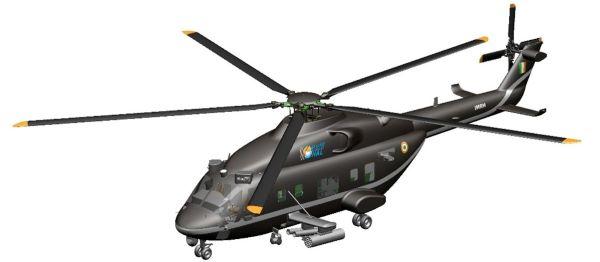
Safran Helicopter Engines and India’s Hindustan Aeronautics Limited (HAL) have established a joint venture (JV) to develop, produce and support engines destined for India’s indigenous rotorcraft.
The Bangalore-based JV company will lead on the engines for HAL’s planned 13-ton twin-engine Indian Multi-Role Helicopter (IMRH) and the naval Deck-Based Multi-Role Helicopter (DBMRH).
Although the two companies have worked together previously on helicopter engines for platforms like the Dhruv, Light Utility Helicopter and the Prachand light attack helicopter, Safran says that the new joint venture will be the country’s first in-country rotorcraft engine design and manufacturing capability. The decision to establish the JV, follows a memorandum of understanding signed by the two companies in July 2022, with workshares agreed upon during 2023.
Cedric Goubet, Safran Helicopter Engines’ CEO, said the creation of the JV marked a “turning point” in the long-standing relationship between our two companies but also between India and France.
“Together we will remain fully dedicated to our customers in India, proud to be designing and producing new efficient helicopter engines,” Goubet said.
The future engine is likely to derive from the design of the RTM322 turboshaft which currently powers the NH90 battlefield and naval helicopter. Engine power is expected to be around 2,700 shp.
The Dhruv, the Light Combat Helicopter and the Light Utility Helicopter are powered by an Ardiden derivative known as Shakti.
As well as developing the engine for the IMRH and the DBMRH, the new joint venture will expand cooperation between Safran and HAL and will “explore opportunities for strategic business collaboration,” Safran officials stated. The IMRH will replace the Indian Air Force’s (IAF) fleet of Russian-supplied Mi-17 transport helicopters, of which some 239 are currently in service. HAL foresees a need of around 200 IMRH rotorcraft for the air force alone, while the Indian Army could purchase another 100.
The agreement on the joint venture was one of several defense agreements approved by the French and Indian governments during the visit of Prime Minister Narendra Modi to Paris on July 14.
